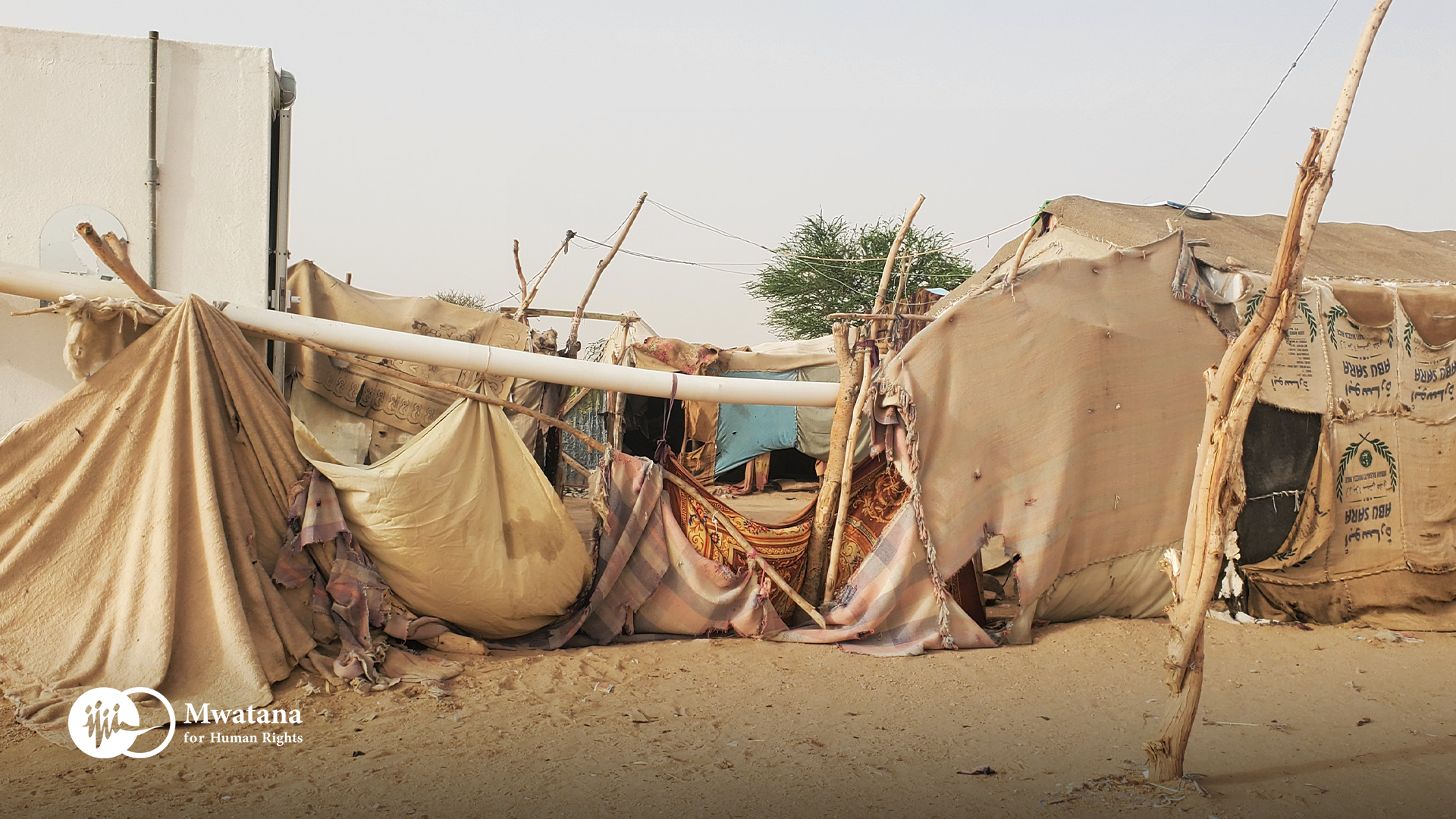
Alike in Misery and Tragedy

Abyan Governorate in southern Yemen is facing a humanitarian and living crisis comparable to those experienced by other Yemeni governorates. This crisis is exacerbated by the depreciation of the local currency, the soaring prices of essential goods, and the increasing numbers of internally displaced persons (IDPs).
Compounding the situation is the deterioration of basic services. Residents report persistent power outages, a lack of clean water, and poor communication and internet networks. Meeting even the simplest needs has become a significant challenge.
IDPs who fled conflict zones to camps in Abyan find themselves enduring even harsher and more miserable conditions. Torrential rains and floods have swept away their makeshift shelters of banana leaves and straw, leaving them exposed to the elements.
Although the suffering of residents and IDPs is comparable, IDPs face unique challenges, including harassment from local residents demanding fees for the land on which they are settled, further aggravating their plight without any entity to advocate for their rights.
Moreover, IDPs endure discrimination and racism in some camps. Diseases are rampant among children and the elderly due to the lack of funds to purchase medicine. Many displaced children are unable to attend school and resort to begging on the streets and in markets until late at night.
This precarious existence has led to an increase in cases of harassment and sexual assault among displaced children. However, these incidents are often concealed out of fear of "scandal," deepening the victims’ suffering within the camps.
Kifa’ya Ahmed Ayash, 30, an IDP from Hays District in Al Hudaydah Governorate, now living in Hesn Shaddad camp in Zinjibar District, said:
"We have been living in dire humanitarian conditions since our displacement, which worsened after the floods and rains washed away everything we owned."
Kifa’ya has three children (two daughters and a son) aged between six and eight. She explains that her children are forced to beg to secure food:
"Most IDPs beg like us because we cannot find suitable work. We lived in the open for a while before I left the camp in search of a safe place away from the valley where we had been staying. Displacement is a painful experience that only those forced to leave their homes in search of a better life can truly understand."
Halima Yahya Husni Moshrafi, 33, a divorced mother of five, has been displaced since 2016 from Bait Al-Faqih District in Al Hudaydah Governorate. She now resides in Halama camp in Khanfar District. Halima said:
"I fled in search of a better and safer life, but unfortunately, I found extremely difficult conditions in Abyan, both in terms of safety and livelihood. I couldn’t find suitable work and had to labor on a farm for a meager wage. When floods, winds, and rains struck, they swept away my tent and all the food and blankets I had, leaving me to live in the open. My children and I went days without food, and even the local residents here suffer conditions as bad as ours."
She added:
"We cannot return home because our houses were destroyed in the war, and no one addresses our needs. Initially, we received some aid from relief organizations, but as the number of IDPs grew, many were deprived of assistance. I don’t know why. Most of us now resort to begging to survive."
Numerous IDPs endure harsh conditions, including seven families in Al-Hesn camp who have been severely affected. Similarly, camps such as Al-Hesn, Al-Dukara, Al-Mahjar, Al-Rudaini, Jul Al-Sadah, Jul Salem, Jul Sinan, Miklan, Jul Ahmed, and Al-Wadi in Khanfar District, as well as Hesn Shaddad, Al-Tamisi, and Dahl Ahmed camps in Zinjibar District, have all suffered significant damage, leaving most IDPs living in the open.
Mwatana for Human Rights calls on all parties to the conflict to adhere to international human rights law in their treatment of civilians, particularly IDPs. This includes respecting fundamental freedoms such as freedom of movement and the right to access decent job opportunities, as well as complying with the UN’s Guiding Principles on Internal Displacement